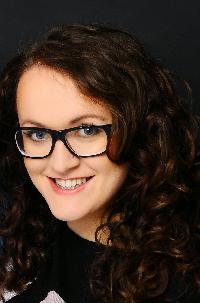| Pagine: [1 2] > | Poll: Do you think it's possible to be a good translator in multiple language pairs? Iniziatore argomento: ProZ.com Staff
|
|---|
This forum topic is for the discussion of the poll question "Do you think it's possible to be a good translator in multiple language pairs?".
This poll was originally submitted by Analia Cassano. View the poll results »
| | | | Mary Worby 
Regno Unito
Local time: 00:44
Da Tedesco a Inglese
+ ...
| It depends on how you define multiple | Jun 15, 2012 |
I'd answer yes for two or possibly three languages, but I think it would be difficult for any more. I'd also suggest it is easier to be a good translator from multiple languages into a single one than it is to be a good translator into multiple languages.
| | | | | Agree with Mary | Jun 15, 2012 |
I think it's possible to be a good translator with several source languages - but only into one target language, and that has to be mother tongue.
Not saying there are no exceptions to this rule, but that's what they'll be - exceptions, and few and far between.
| | | | neilmac
Spagna
Local time: 01:44
Da Spagnolo a Inglese
+ ...
In general I try to judge others by my own standards. Until recently, I was translating from both French and Castilian Spanish into English quite successfully, but I noticed that my French was getting rusty through lack of practice, so I no longer provide that service.
I don't find it inconceivable that someone can translate from more than one language, but would prefer it to be into only one native target language in 99% of cases.
PS: Many of the Balkan area countri... See more In general I try to judge others by my own standards. Until recently, I was translating from both French and Castilian Spanish into English quite successfully, but I noticed that my French was getting rusty through lack of practice, so I no longer provide that service.
I don't find it inconceivable that someone can translate from more than one language, but would prefer it to be into only one native target language in 99% of cases.
PS: Many of the Balkan area countries (like the ones that tend to vote for each other in Eurovision) are to some extent mutually intelligible so I'm pretty sure there are several polyglot translators working in these languages.
[Edited at 2012-06-15 09:09 GMT] ▲ Collapse
| | |
|
|
|
Being a good translator and knowing a language well are two different things. One can be fully bilingual, yet be totally unfit as a translator. Conversely, an excellent translator will usually produce a decent translation even from a language he has just started learning.
Speaking of the skills required to become a good translator, I'd list them in the order of decreasing importance as follows:
1. Professional diligence. Never cut corners on lookup and research. If you ... See more Being a good translator and knowing a language well are two different things. One can be fully bilingual, yet be totally unfit as a translator. Conversely, an excellent translator will usually produce a decent translation even from a language he has just started learning.
Speaking of the skills required to become a good translator, I'd list them in the order of decreasing importance as follows:
1. Professional diligence. Never cut corners on lookup and research. If you are not 100% certain, always check your version against a dictionary, Internet, etc.
2. Mastery of one's mother tongue. Surprisingly, lots of translators produce stylistically and syntactically clumsy texts in their own native language.
3. Understanding of the subject. You don't necessarily have to be a doctor to translate medical texts, but, for example, having grown up in a family of doctors may give you a reasonable minimum background.
And only then
4. Mastery of the source language. ▲ Collapse
| | | | | Yes, as long as there aren't too many | Jun 15, 2012 |
As long as there aren't too many. It depends on the languages too. Translating from, say, Spanish, Catalan, Galician and Portuguese is not the same as translating from French, Hebrew, Japanese and Hindi.
| | | | | It depends on what is meant by multiple, | Jun 15, 2012 |
as Mary says, I translate from English, French, Italian and Spanish to European Portuguese. I used to translate from German and Dutch but, as NeilMac, I got rusty by lack of practice. I started translating some 30 years ago from English and French only...
[Edited at 2012-06-15 10:01 GMT]
| | | | | Of course - into one target language | Jun 15, 2012 |
For a staff position as an English translator in the Organization of American States, the Inter-American Development Bank, and the Pan American Health Organization (and maybe other inter-American organizations), a translator is *required* to work from Spanish, Portuguese, and French and usually has to take tests from all three. The United Nations requires at least two source languages.
On the other hand, no organization in the UN family allows translators to work into any language ... See more For a staff position as an English translator in the Organization of American States, the Inter-American Development Bank, and the Pan American Health Organization (and maybe other inter-American organizations), a translator is *required* to work from Spanish, Portuguese, and French and usually has to take tests from all three. The United Nations requires at least two source languages.
On the other hand, no organization in the UN family allows translators to work into any language but their mother tongue.
Translators who can work *successfully* into two languages are very rare birds. ▲ Collapse
| | |
|
|
|
| EU institutions apply more or less the same criteria | Jun 15, 2012 |
Muriel Vasconcellos wrote:
For a staff position as an English translator in the Organization of American States, the Inter-American Development Bank, and the Pan American Health Organization (and maybe other inter-American organizations), a translator is *required* to work from Spanish, Portuguese, and French and usually has to take tests from all three. The United Nations requires at least two source languages.
On the other hand, no organization in the UN family allows translators to work into any language but their mother tongue.
Translators who can work *successfully* into two languages are very rare birds.
EU translators (in-house) are recruited by open competitions organised by the EPSO. The basic eligibility criteria are, besides being a citizen of the European Union, have a perfect command of the target language; a thorough knowledge of a first source language (which must be English, French or German); and a thorough knowledge of a second source language, which is always one of the 23 official languages of the European Union, and often a third and a fourth language…The languages required vary each year. In 2011, the institutions were looking for translators in Czech, Hungarian, Lithuanian, Maltese, Polish and Slovak.
| | | | | two = multiple | Jun 15, 2012 |
... So the majority of users of this site would have to bow out if it was only possible to be good in one pair. Including myself.
It depends on the person, and so many other factors. But it is manifestly possible for a lot of good translators to work well in more than one language pair.
Language is a strange phenomenon that refuses to be bound by rules in any way.
Think grammar, think Noam Chomsky (whether you agree with him, disagree or, like me, know ver... See more ... So the majority of users of this site would have to bow out if it was only possible to be good in one pair. Including myself.
It depends on the person, and so many other factors. But it is manifestly possible for a lot of good translators to work well in more than one language pair.
Language is a strange phenomenon that refuses to be bound by rules in any way.
Think grammar, think Noam Chomsky (whether you agree with him, disagree or, like me, know very little about him but don't think systems like that are important...)
Humans are even more complex than language. Some really can master a large number of languages, whether they can translate or not - it is not the same thing.
Some can and do master several languages in a limited subject area.
If you don't have the training, don't do it yourself, but rules should only be applied to language with extreme caution. ▲ Collapse
| | | | Paul Adie (X) 
Germania
Da Spagnolo a Inglese
+ ...
| I really do hope so. | Jun 15, 2012 |
With Spanish, Catalan, Russian and Lithuanian as source languages, I really do hope so!
Russian and Lithuanian do involve more research though, and I have to take more time to ensure the translation is good. I charge accordingly 
Paul
[Edited at 2012-06-15 10:12 GMT]
| | | | jacana54 (X) 
Uruguay
Da Inglese a Spagnolo
+ ...
| Limited subject area | Jun 15, 2012 |
Christine Andersen wrote:
Some can and do master several languages in a limited subject area.
I don't do it myself but I can see how this would be true, if the translator is thoroughly familiar with the subject area, for example, law or medicine. Particularly because professionals or researchers in these fields regularly study texts in different languages.
Of course, I'm thinking of more than one source language and one target language.
| | |
|
|
|
Ty Kendall 
Regno Unito
Local time: 00:44
Da Ebraico a Inglese
| Definition of a "language" / Dialect Continuum | Jun 15, 2012 |
Part of the problem with the question is the fluid definition of what a language is.
Linguistically, Serbian, Bosnian and Croatian are the essentially dialects of the same language. For socio-political reasons, they are classed as separate languages. The same thing could be said for other Sprachraums. A translator working with these languages could find that "being good" with 3,4+ source "languages" a lot easier than a translator working with linguistically divergent languages.
... See more Part of the problem with the question is the fluid definition of what a language is.
Linguistically, Serbian, Bosnian and Croatian are the essentially dialects of the same language. For socio-political reasons, they are classed as separate languages. The same thing could be said for other Sprachraums. A translator working with these languages could find that "being good" with 3,4+ source "languages" a lot easier than a translator working with linguistically divergent languages.
Similarly, working with multiple languages in the same genetic family e.g. having multiple Romance/Germanic languages is common and would not be a superhuman feat.
I also belong to the "native only as target language" camp.
Moreover, what is "multiple"? For source languages: 2 is practically standard, 3,4 are common. I think once you get to 5,6+ you start to lose credibility (if they are divergent languages).
I think the listing of multiple target languages (more than 2) is practically criminal. As I said, I firmly believe that you should only translate into your native language. ("True" bilinguals notwithstanding - although this site would have you believe "true" bilinguals are two a penny).
The translator who can competently translate to and from multiple languages is like the Yeti, many people are convinced they must exist, but nobody has ever met one.
....and we've all seen the results of those translators who claim such competence on KudoZ (especially if you take a gander at KudoZ in several Romance languages).
[Edited at 2012-06-15 13:58 GMT] ▲ Collapse
| | | | Interlangue (X)
Angola
Local time: 01:44
Da Inglese a Francese
+ ...
Anton Konashenok wrote:
Being a good translator and knowing a language well are two different things. One can be fully bilingual, yet be totally unfit as a translator. Conversely, an excellent translator will usually produce a decent translation even from a language he has just started learning.
Speaking of the skills required to become a good translator, I'd list them in the order of decreasing importance as follows:
1. Professional diligence. Never cut corners on lookup and research. If you are not 100% certain, always check your version against a dictionary, Internet, etc.
2. Mastery of one's mother tongue. Surprisingly, lots of translators produce stylistically and syntactically clumsy texts in their own native language.
3. Understanding of the subject. You don't necessarily have to be a doctor to translate medical texts, but, for example, having grown up in a family of doctors may give you a reasonable minimum background.
And only then
4. Mastery of the source language.
Good passive knowledge of the source language is often sufficient, good understanding of the subject matter is more important and most important of all is mastery of the mother tongue, which seems a priority for very few translators.
| | | | | Yes, I guess so | Jun 15, 2012 |
As long as you translate only into your native language. I have 2 main source languages (Greek and English). I moved to Holland almost 2 years ago and my Dutch is becoming much better every day (most of my free time is invested in learning Dutch).
I am not yet translating from Dutch (not for business purposes, but I do plenty of translations for practice). My plan for future is to limit my source languages to 2 only (Dutch & English or Dutch & Greek). It will be difficult to decide... See more As long as you translate only into your native language. I have 2 main source languages (Greek and English). I moved to Holland almost 2 years ago and my Dutch is becoming much better every day (most of my free time is invested in learning Dutch).
I am not yet translating from Dutch (not for business purposes, but I do plenty of translations for practice). My plan for future is to limit my source languages to 2 only (Dutch & English or Dutch & Greek). It will be difficult to decide though.
I enjoy translations from English the most and there is a greater market for English>Romanian than for Greek>Romanian, but also more competition. On the other hand, I kind of gained a name already for Greek>Romanian (language pair that generates about 60% of my income) and it was difficult and time consuming to build that name. But I still have 1-2 years to think about it ▲ Collapse
| | | | | Pagine: [1 2] > | To report site rules violations or get help, contact a site moderator: You can also contact site staff by submitting a support request » Poll: Do you think it's possible to be a good translator in multiple language pairs? | Anycount & Translation Office 3000 | Translation Office 3000
Translation Office 3000 is an advanced accounting tool for freelance translators and small agencies. TO3000 easily and seamlessly integrates with the business life of professional freelance translators.
More info » |
| | Trados Studio 2022 Freelance | The leading translation software used by over 270,000 translators.
Designed with your feedback in mind, Trados Studio 2022 delivers an unrivalled, powerful desktop
and cloud solution, empowering you to work in the most efficient and cost-effective way.
More info » |
|
| | | | X Sign in to your ProZ.com account... | | | | | |















